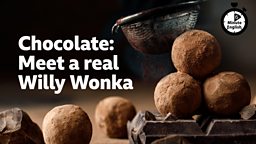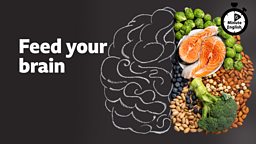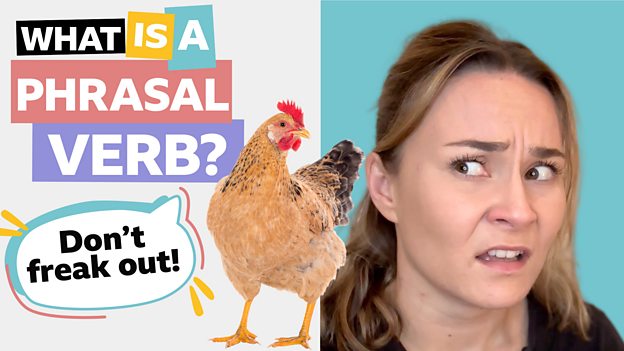6 Minute English
Intermediate level
Why we love dumplings
Episode 240822 / 22 Aug 2024

_____________________________________________________________________________________________________
Download a free 6 Minute English worksheet!
Download a free transcript!
_____________________________________________________________________________________________________
Learn more about food
_____________________________________________________________________________________________________
Try more episodes of 6 Minute English:
______________________________________________________________________________________________________
Introduction
Every country seems to have its own version of dumplings! Neil and Beth discuss this delicious food and teach you some useful vocabulary.
This week's question
What is suet made from?
a) Wheat
b) Potato or,
c) Animal fat
Listen to the programme to hear the answer.
Vocabulary
hits the spot
(idiom) is exactly what you needed or wanted; gives total satisfaction
staple food
basic and important type of food that is regularly eaten by a large portion of the population
yum yum!
exclamation used to say that food tastes or smells very good
dig in!
used to invite someone to start eating and encourage them to eat as much as they want
comfort food
food that makes you feel happier because it tastes good to eat, or because it reminds you of home
tummy
(informal) stomach
TRANSCRIPT
Note: This is not a word-for-word transcript.
Neil
Hello. This is 6 Minute English from BBC Learning English. I’m Neil.
Beth
And I’m Beth.
Neil
In China they’re crescent shaped and filled with pork and cabbage, in Nepal they’re called momos and are fried with buffalo meat. In Ireland they’re soaked in Guinness gravy, and Italians fill them with spinach and call them gnocchi. They can be steamed or fried and are found all over the world. I’m talking, of course, about dumplings.
Beth
Dumplings are a group of dishes where a filling is wrapped inside pieces of cooked dough. They’re basically dough envelopes with a filling inside. Fillings can be anything from meat and fish to vegetables, tofu or cheese. And the dough is usually based on a starchy grain like wheat, rice, corn or potato. In fact, the English word, ‘dumpling’, comes from a 17th century adjective, dump, meaning ‘dough-like’.
Neil
The really amazing thing about dumplings is that they’re found all over the world. Over the centuries, different countries and regions have experimented with flavours and fillings to create something unique. Wherever in the world you are there’s probably a special kind of dumpling for you!
Beth
In this programme, we’ll be sampling a dumpling from the West African country of Ghana. And, as usual, we’ll be learning some useful new vocabulary as well.
Neil
Great! But first I have a question for you, Beth. Probably the most famous British dumplings, suet dumplings, are cooked on top of a chicken or beef stew. They’re made from suet… but what exactly is that? Is suet:
a) wheat?
b) potato? or,
c) animal fat?
Beth
Hmmm, I think suet is made from animal fat.
Neil
OK, Beth, we’ll find out if that’s the correct answer later in the programme. The origins of dumplings are a mystery. Historians think the dish is very old, but no-one knows for sure when or where the first dumpling was cooked. One theory puts the birthplace of the dumpling along the Silk Road, linking China with Central Asia, and Turkey.
Beth
One way or another, the dumpling journeyed through the Middle East and across Africa to Ghana, where today it’s a favourite way of adding carbohydrates to a dish, as well as soaking up sauce and juices. Kafui Adzah is a businesswoman and fan of the Ghanian dumpling called, kenkey.
Neil
Here she introduces kenkey to Ruth Alexander, presenter of BBC World Service programme, The Food Chain:
Kafui Adzah
I love kenkey. In fact I had kenkey this afternoon!
Ruth Alexander
You’ve had some this afternoon?
Kafui Adzah
Yes.
Ruth Alexander
Ah, lovely. And it hits the spot?
Kafui Adzah
Absolutely, and… the Ga-Adangbe is one of the tribes in Ghana and kenkey is their staple food, even though it’s eaten across the whole country.
Ruth Alexander
How is it then eaten?
Kafui Adzah
Now we have to eat kenkey with what we call shito – chilli sauce. OK. But we also have the black sauce… it's like with shrimps, fish, and all sort of proteins in it. And then... Yum Yum! You go at it! You dig in!
Ruth Alexander
Is this really satisfying comfort food?
Kafui Adzah
It is very satisfying, in fact kenkey is loved by most people who do manual work because it fills the tummy and it takes you almost a whole day before you feel hungry again.
Beth
Kafui says eating kenkey really hits the spot. If something hits the spot, it’s exactly what you wanted and totally satisfies you.
Neil
Kenkey dumplings are made from maize sourdough and eaten across Ghana. For some tribes, kenkey is their staple food – a basic and important type of food that is regularly eaten by a large portion of the population. In Britain for example, bread and eggs are staple foods.
Beth
Kenkey takes time to make - the maize needs to be soaked in water for a week. But when they’re ready and served with a hot chilli sauce, Kafui uses two phrases to show it’s time to eat. Yum yum! is used to say that food tastes or smells very good, and dig in! is another exclamation meaning: don’t wait, start eating and eat as much as you like.
Neil
For Ghanaians, kenkey is comfort food, something which is enjoyable to eat and makes you feel happier. And what’s more, it fills your tummy or stomach.
Beth
Whatever type you eat and wherever in the world you eat them, dumplings are a great way to spread a little love, including in Britain!
Neil
Ah yes, it looks like we’re back to my earlier question. I asked you what the traditional British suet dumpling is made from. Beth guessed it was animal fat, which was… the correct answer! Suet dumplings aren’t the healthiest, but for some Brits they’re certainly comfort food - food that makes you feel happier because it tastes good, or because it reminds you of home.
Beth
OK, let's recap the rest of the vocabulary we've learned in this programme, starting with the idiom hits the spot, meaning that something is satisfying and exactly what you wanted.
Neil
A staple food is a basic and important type of food that is regularly eaten by a large portion of the population.
Beth
The exclamation yum yum! is used to say that food tastes or smells delicious.
Neil
If you say dig in! you’re inviting someone to start eating as much as they want.
Beth
And finally, tummy is an informal word for stomach. Once again our six minutes are up, but remember to join us again next time for more trending topics and useful vocabulary, here at 6 Minute English. Goodbye for now!
Neil
Bye!
Latest 6 Minute English

Embarrassed to go to the doctor?
Episode 241226 / 26 Dec 2024
Have you ever been embarrassed to go to the doctor?

Call centres: Are you talking to AI?
Episode 241219 / 19 Dec 2024
Have you ever phoned up a company and had your call held in a queue? Could AI make this less painful?

Making 'mum friends'
Episode 241212 / 12 Dec 2024
Is making new ‘mum friends’ the positive experience it’s often described as?

Can you trust ancestry DNA kits?
Episode 241205 / 05 Dec 2024
Are DNA ancestry tests a reliable way to trace your ancestry?

How babies learn to talk
Episode 241128 / 28 Nov 2024
What do babies need to learn to do to be able to talk?


The bond between sisters
Episode 241114 / 14 Nov 2024
Are the stereotypes about older and younger sisters true?


Why you need a good night's sleep
Episode 241031 / 31 Oct 2024
Why is it so important to get a good night's sleep?

Divorce: Why does it happen?
Episode 241024 / 24 Oct 2024
How is divorce talked about in different countries?


Did Taylor Swift fans cause an earthquake?
Episode 241010 / 10 Oct 2024
Did Taylor Swift move the Earth?


Learning a new food culture
Episode 240926 / 26 Sep 2024
Would you find it different to adapt to a new food culture?

Saving water in the driest place on Earth
Episode 240919 / 19 Sep 2024
How do farmers in the driest place on Earth manage to grow crops? With this solution!



Chocolate: Meet a real Willy Wonka
Episode 240829 / 29 Aug 2024
Would you like to be a chocolate maker, like Roald Dahl's Willy Wonka?

Why we love dumplings
Episode 240822 / 22 Aug 2024
Warning! This episode might make you very hungry...

Kids and climate change
Episode 240815 / 15 Aug 2024
What are young people's thoughts on climate change?


The science of falling in love
Episode 240801 / 01 Aug 2024
What's really happening in our brain when we fall in love?

AI to reduce animal testing
Episode 240718 / 18 Jul 2024
Could AI reduce the need for animal testing?

Why read books, not screens?
Episode 240718 / 25 Jul 2024
Why is it better to read from a book than a screen?

The school that puts the kids in charge
Episode 240711 / 11 Jul 2024
What happens when you put the kids in charge of the school?

What can we learn from toddlers?
Episode 240704 / 04 Jul 2024
Learn to speak to yourself in the way that toddlers do!

How learning to read changes lives
Episode 240627 / 27 Jun 2024
How can literacy change people's lives?

Building a better world with wood?
Episode 240620 / 20 Jun 2024
How can buildings made from wood help our mental health?

How names can tell painful stories
Episode 240613 / 13 Jun 2024
Could our name have painful baggage?

E-rickshaws driving away pollution
Episode 240606 / 06 Jun 2024
Could E-rickshaws give us cleaner air?




Bitter food, better health?
Episode 240509 / 09 May 2024
Could bitter foods be better for your health?







Disability in music and theatre
Episode 240321 / 21 Mar 2024
Learn about the people who are making it easier for disabled musicians and music fans to perform and see live music


Sewing to fight period poverty
Episode 240307 / 07 Mar 2024
Period poverty affects over 500 million people worldwide. How can a volunteer project help?

Plastic waste eaten by enzymes
Episode 240229 / 29 Feb 2024
Plastics can be difficult to recycle. Could a recently discovered enzyme help?

Feed your brain
Episode 240222 / 22 Feb 2024
Food is fuel for our brains. So, what should we be eating?

Food for new mums
Episode 240215 / 15 Feb 2024
Having a baby is exhausting! What do mothers need to eat after giving birth?

Fighting loneliness with soup
Episode 240208 / 08 Feb 2024
Hear how a project in the Netherlands is helping in the fight against loneliness


How the language of menus matters
Episode 240125 / 25 Jan 2024
Why is the language used on menus important?










